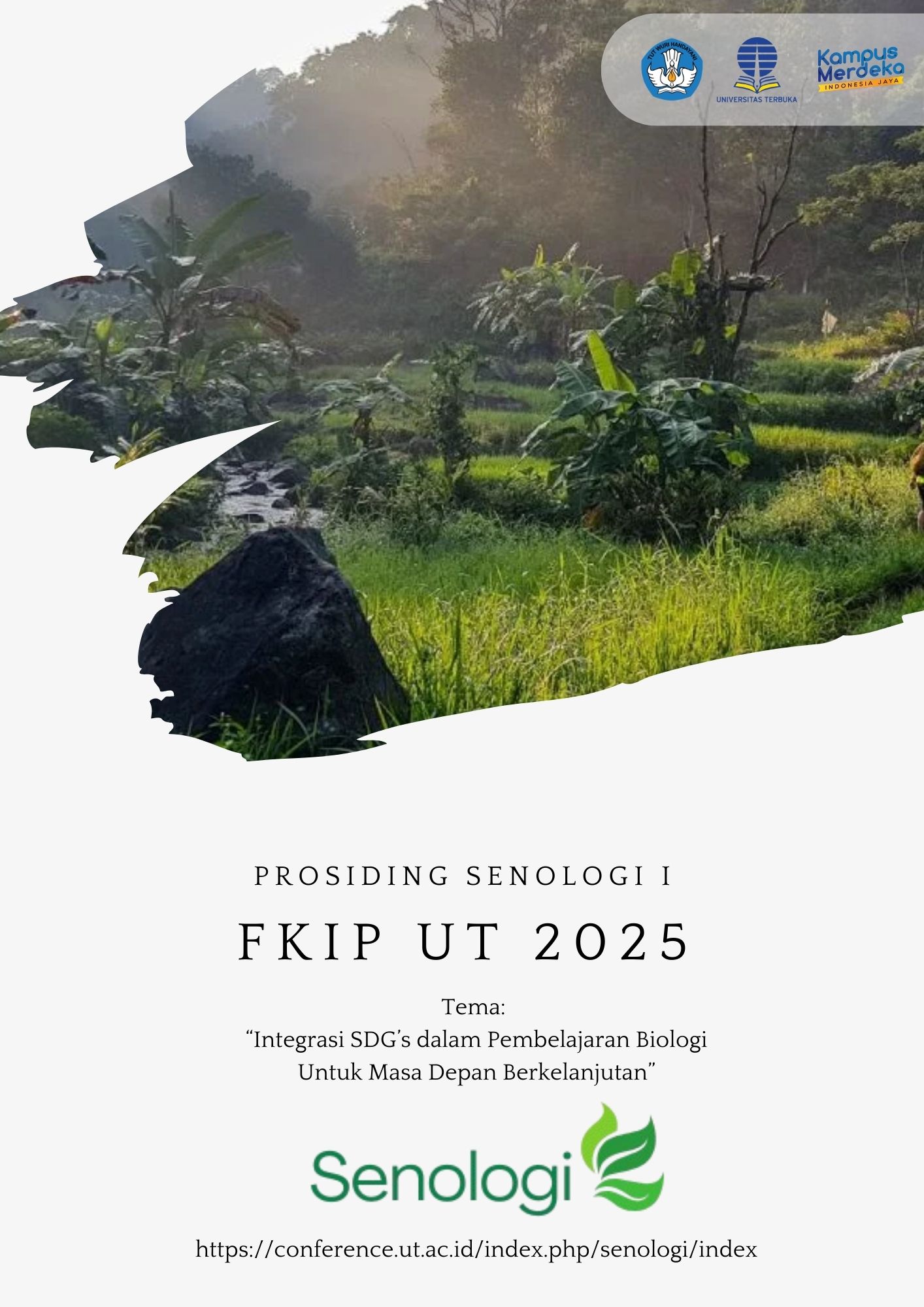Efektivitas Pembelajaran Terintegrasi Islamic-Science Environment Technology Society (I- SETS) Terhadap Hasil Belajar Kognitif SiswaPada Materi Sistem Reproduksi Manusia Kelas XI MIPA
DOI:
https://doi.org/10.33830/senologi.v1i1.5207Kata Kunci:
Effectiveness, Integration, I-SETS, Learning outcomes, Reproductive systemAbstrak
Science, as a field of knowledge, can be integrated with religious values, as well as environmental, technological, and societal aspects. This study aims to provide information on the effectiveness of the Islamic-Science Environment Technology Society (I-SETS) integrated learning model in improving students' cognitive learning outcomes on the human reproductive system topic. The research method used is a Quasi-Experimental Design with purposive sampling as the sampling technique. Data collection techniques involved observation sheets to assess the implementation of I-SETS learning and tests. Data analysis utilized N-Gain and Z- Test, with prerequisite tests including normality and homogeneity tests. The results showed that: 1) The average pretest score of the experimental class was 51.46, while the posttest score was 84.97. In the control class, the pretest score was 52.97, and the posttest score was 79.81. 2) The N-Gain calculation indicated that the control class scored 0.5313 (medium criteria), while the experimental class scored 0.7022 (high criteria). Based on the Z-Test results, the significance value was 0.000 < 0.05, indicating that Ha is accepted, meaning “there is a difference between the control and experimental classes that were treated with the I-SETS model.” The conclusion of this study is that the integration of the Islamic-Science Environment Technology Society (I- SETS) learning model effectively enhances students' cognitive learning outcomes in the human reproductive system topic.


